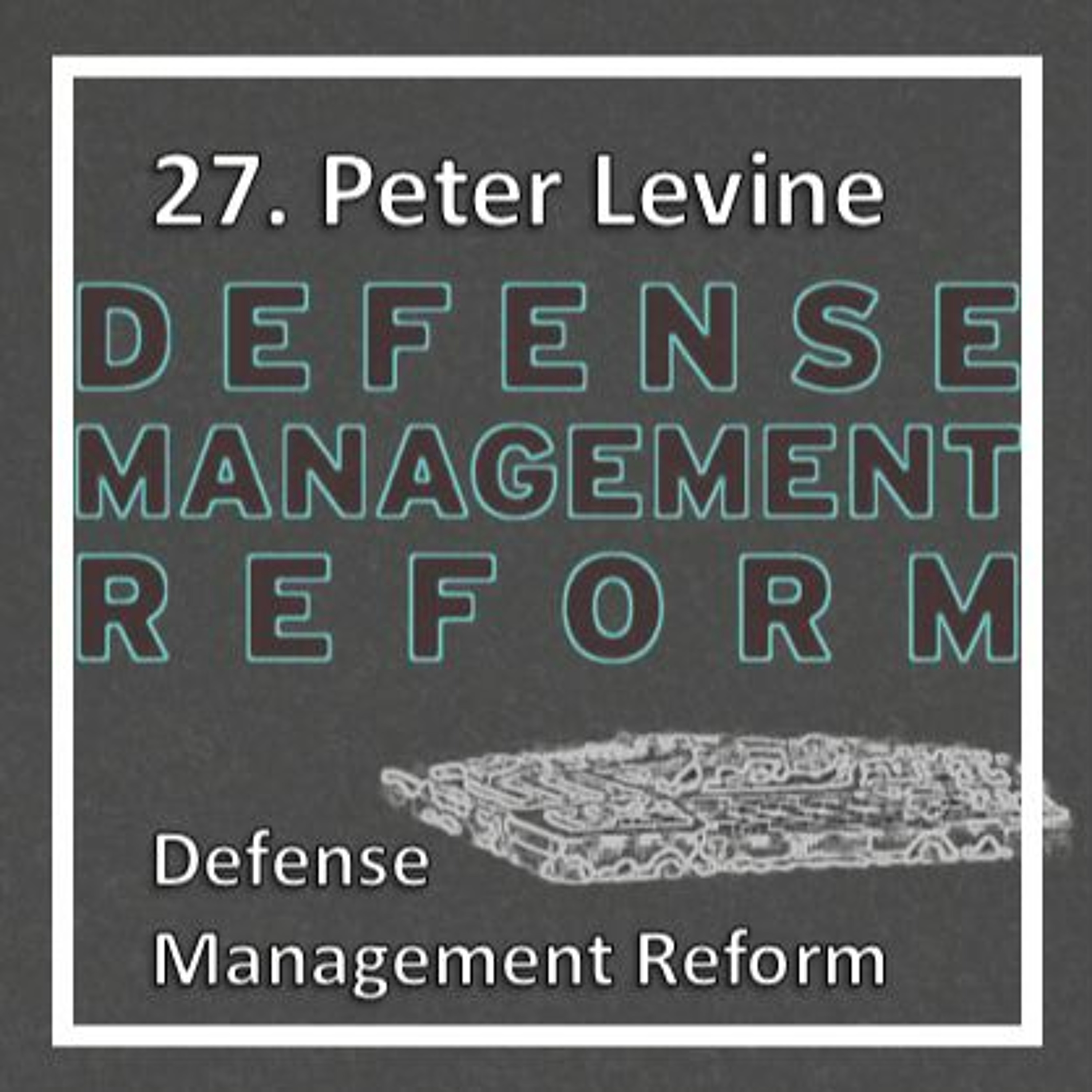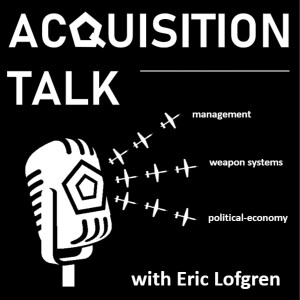
I was pleased to speak with Peter Levine on the Acquisition Talk podcast about his new book, Defense Management Reform: How to Make the Pentagon Work Better and Cost Less. He was a career professional staff member for Congress and former Deputy Chief Management Officer. During our wide-ranging conversation, we discuss:
Why the DoD is more like an economy than a business
The balance between experimentation and discipline
Views on Middle-Tier and OTAs
How budgets can be cherry-picked to meet a strategy
The assertion of civilian control
Peter argues that the 2009 Weapon Systems Acquisition Reform Act (WSARA) should be viewed as a huge success on its own terms. The 1990s emphasis on deregulation and commercial item contracting was extremely important for less complex procurement, but created problems for major programs. Too often major programs were initiated without buying down sufficient technical risk through experimentation and analysis. This led to a great deal of cost growth in the 2000s.
By adding discipline, such as raising the status of independent cost estimates, programs started after WSARA have shown far greater stability and less cost growth. But there are no silver bullets, Peter reminds us. The valid criticism of WSARA is that it brought stability at the expense of innovation. This directly led into the 2015-present reforms re-emphasizing rapid acquisition, iterative development, and commercial procedures. These concepts are not new, and while they may apply well to software efforts, they does not obviate the need for cost, schedule, and technical baselines ahead of Milestone B.
This podcast was produced by Eric Lofgren. Soundtrack by urmymuse: "reflections of u". You can follow us on Twitter @AcqTalk and find more information at AcquisitionTalk.com.
view more
More Episodes
NatSec News: Nov. 11, 2022
 2022-11-17
2022-11-17
 2022-11-17
2022-11-17
NatSec News: Nov 1, 2022
 2022-11-02
2022-11-02
 2022-11-02
2022-11-02
NatSec News: Oct 25, 2022
 2022-10-26
2022-10-26
 2022-10-26
2022-10-26
NatSec News: Sep. 27, 2022
 2022-09-28
2022-09-28
 2022-09-28
2022-09-28
NatSec News: Sep. 13, 2022
 2022-09-14
2022-09-14
 2022-09-14
2022-09-14
NatSec News: Aug 19 2022
 2022-08-19
2022-08-19
 2022-08-19
2022-08-19
NatSec News: Aug. 8, 2022
 2022-08-03
2022-08-03
 2022-08-03
2022-08-03
NatSec News: July 26, 2022
 2022-07-27
2022-07-27
 2022-07-27
2022-07-27
NatSec News: July 14, 2022
 2022-07-15
2022-07-15
 2022-07-15
2022-07-15
NatSec News: June 28, 2022
 2022-06-29
2022-06-29
 2022-06-29
2022-06-29
012345678910111213141516171819
Create your
podcast in
minutes
- Full-featured podcast site
- Unlimited storage and bandwidth
- Comprehensive podcast stats
- Distribute to Apple Podcasts, Spotify, and more
- Make money with your podcast
It is Free
- Privacy Policy
- Cookie Policy
- Terms of Use
- Consent Preferences
- Copyright © 2015-2024 Podbean.com






